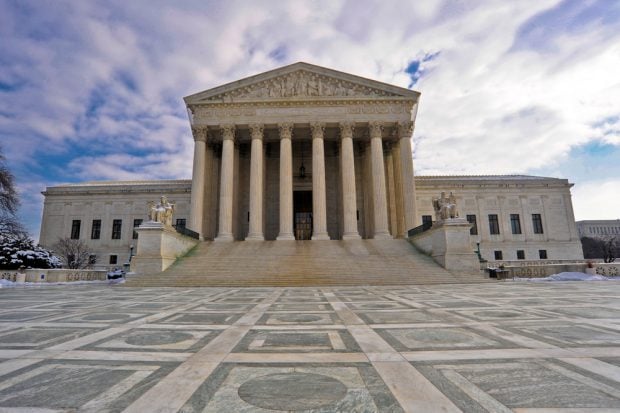Taxation fears are once again permeating the thoughts of creditunion leaders. For example, NAFCU President/CEO Fred Becker toldCredit Union Times that if credit unions were taxed, “Theycouldn't continue to exist. They have no means to raise capitaland the corporate tax rate is arduous. And taxing revenue that hasbeen put aside as capital raises safety and soundnessconcerns.”
|In the same article (April 27 issue, page 1), former NCUAChairman Dennis Dollar said taxation will cause a “wholesaleabandonment of the credit union charter” because the bank charterwill be “considerably more appealing.”
|However, if taxation is inevitable, you can bet the NCUA and CUtrades will be fighting to prevent a wholesale abandonment of thecredit union charter. There's a mountain of evidence since 2004 ofa conspiracy to slow conversions. The self-interest of theregulator and the trades is manifold and overwhelminglytransparent.
|Hence, as part of a taxation compromise with legislators,charter choice could be lost or made too costly to consider. TheNCUA and credit union trades will rationalize the deal by boastingthat the consumer was rescued and NCUSIF devastation prevented.
|The American Bankers Association has said it will drop itsobjections to alternative capital and business lending expansion,seemingly a victorious compromise for credit unions, in exchangefor taxation. But once you are taxed, ABA has what it wants. Whywould it need to defend your right to convert? Meanwhile,ideological critics, empowered by the NCUA's inscrutableregulations, will argue that, with the new powers obtained by thetaxation compromise any future conversions can only be motivated bygreed.
|However, alternative capital structures for credit unions areuntested. The jury is still out regarding the NCUA's ability toproperly supervise business lending. The risks related to theinterdependency of the NCUSIF remain as high as the assessments.And poor consumer awareness persists. All that combined hampers thecompetitiveness of progressive credit unions. It could take alifetime to work through these and other charter handicaps.
|With preservation of a reasonable path to a bank charter, asmandated by H.R. 1151, even those who want to remain credit unionswill benefit from charter choice. Obviously, if the entire industryis trapped, legacy advocates will be less pressured to improvethings. Despite a huge investment and a lot of drumbeating, chartermodernization for credit unions has been elusive. The samehalf-dozen reasons to convert exist today as did 12 years ago, andnow these problems are being magnified by the high cost of NCUAassessments.
|Recently, a new wave of credit unions has invested a great dealof time and money studying charter conversions. The education ishelping to eliminate the fear and misinformation about what isprobably the greatest opportunity for credit unions since sharedraft accounts. For many credit unions, it is now clear the bankcharter is considerably more appealing. Despite any new powers thatmay be gained by the industry, the bank charter option will stillbe attractive after taxation.
|If it's worth spending money to study the conversion option,it's worth making sure the option is there when you need it,instead of allowing it to be regulated out of existence by theNCUA. Otherwise, once taxation hits, credit unions may be trappedforever in a slow growth, systemically impaired charter. It will betoo late to escape.
|So, who will argue to protect the conversion option for creditunions that want to consider it? Not the credit union tradeassociations. Certainly not the NCUA. And not even the ABA. There'sonly one group–a single-issue lobbying organization–standing up foryour legal rights.
|Formed in 2004, after the NCUA started its post-H.R. 1151illegal assault on conversions, the Coalition for Credit UnionCharter Options (www.ccuco.org), an education and advocacy group,has been a clarion voice. It represents the interests of all creditunions that want to preserve charter choice under reasonable rulesand at a reasonable cost.
|CCUCO members recognized years ago that the national and statetrade associations face irreconcilable conflicts attemptingsimultaneously to represent the needs of large and small creditunions, as well as credit union management teams who have divergentideologies. Charter conversion is not a viable option for everyone.But by supporting targeted lobbing efforts, those who could benefitfrom it can diminish the risk of being locked into regulatory orlegislative directives.
|CCUCO is the only party fighting to preserve charter choice. Butit is no longer alone as a credit union lobby group. Nationwide,credit unions are now hiring their own lobbyists. For example, acredit union group from North Carolina spent $600,000 last year onlobbyists and spent $1 million in 2009. Boeing CU is leading agroup that paid $210,000 to lobby presumably for alternativecapital, and Pentagon FCU dropped $260,000 on a big name firm.
|Whatever your credit union's short-term business imperatives,don't end up trapped in the long run. Investing in the CCUCO andpreserving the right to convert makes good business sense.
|Alan D. Theriault is president of CU FinancialServices.
Contact 800-649-2741 or [email protected]
Complete your profile to continue reading and get FREE access to CUTimes.com, part of your ALM digital membership.
Your access to unlimited CUTimes.com content isn’t changing.
Once you are an ALM digital member, you’ll receive:
- Critical CUTimes.com information including comprehensive product and service provider listings via the Marketplace Directory, CU Careers, resources from industry leaders, webcasts, and breaking news, analysis and more with our informative Newsletters.
- Exclusive discounts on ALM and CU Times events.
- Access to other award-winning ALM websites including Law.com and GlobeSt.com.
Already have an account? Sign In
© 2024 ALM Global, LLC, All Rights Reserved. Request academic re-use from www.copyright.com. All other uses, submit a request to [email protected]. For more information visit Asset & Logo Licensing.









